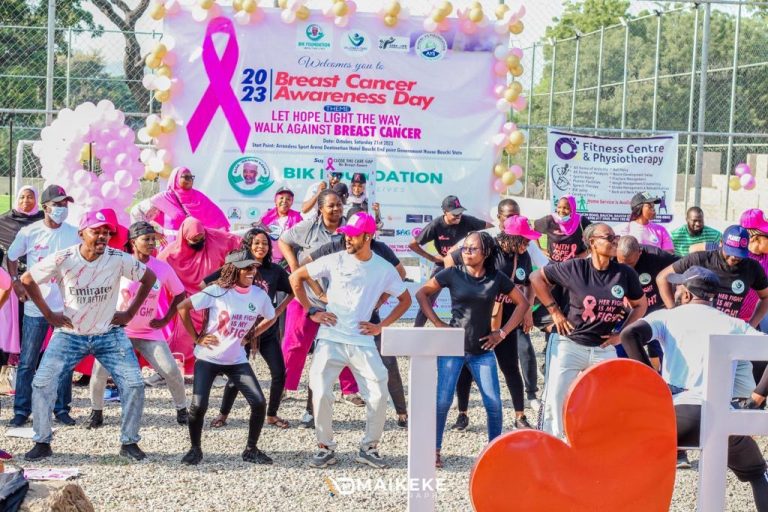The Federal Government is seeking recognition from the World Health Organisation (WHO) and the United Nations (UN) for a “Go Pink Day” to raise breast cancer awareness.
The National Coordinator of the National Cancer Control Programme, Dr Uchechukwu Nwokwu, made this announcement at the “National Go Pink Day 2024” event on Monday in Abuja.
The Go Pink Day campaign, organised by the Federal Medical Centre (FMC), Abuja, in collaboration with the Ministry of Health, aims to promote early detection of breast cancer, the leading cause of cancer deaths in Nigeria.
During the road walk, Nwokwu said the entire month of October was dedicated to cancer awareness, with the goal of improving diagnosis and prompt treatment.
According to him, the essence is for people to see pink, and when they do, it will trigger their mind on the need to screen for cancer.
“We started this project in 2015, and this is the ninth edition.
“We hope to make it bigger and the essence is to use this to encourage WHO and UN to dedicate a `Go Pink Day’, with the aimed to sensitise the world to it.
“We are hoping that the UN will designate a particular date in the month on October as a Go Pink Day,” he said.
According to him, breast cancer has continued to be the most common cancer in Nigeria, and the incidence has continued to rise.
He added that for 2024, the Global Cancer Observatory (GLOBACON) recently released the figures for Nigeria, and over 127,000 cancer incidents have been diagnosed.
“Over 40 per cent of the 127,000 cancer diagnosis in Nigeria is breast cancer, so breast cancer is dominating practically maxed other cancers,” he said.
A Consultant Pathologist at FMC, Dr Izu Achusi, emphasised the importance of early detection, stating that “the earlier you diagnose cancer, the easier it is to cure.”
”The earlier you diagnose cancer, the easier it is to cure and early detected cancers are curable.
“Smoking is the modifiable risk factor for breast cancer. Young girls that smoke shisha, have a tendency to develop cancers.
“The kind of drugs that we take, estrogen and progesterone pills, women who use some of those drugs for pregnancy prevention, also have a tendency to develop cancer,” he said.
He also highlighted lifestyle modifications, healthy diets, and regular exercise as crucial in reducing cancer risks.
The Head of Department, Oncology, Dr Tessy Ahmadu, stressed the need for women to learn self-breast examination, which is “the cheapest and commonest way to check for lumps.”
She also encouraged men to support their wives in detecting breast lumps, as early detection can prevent the need for mastectomy.
“If they are used to the consistency of their wives’ breasts, when there is something not right, they will find out and they can also lend their voices.”
NAN


